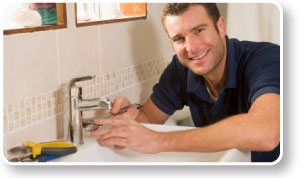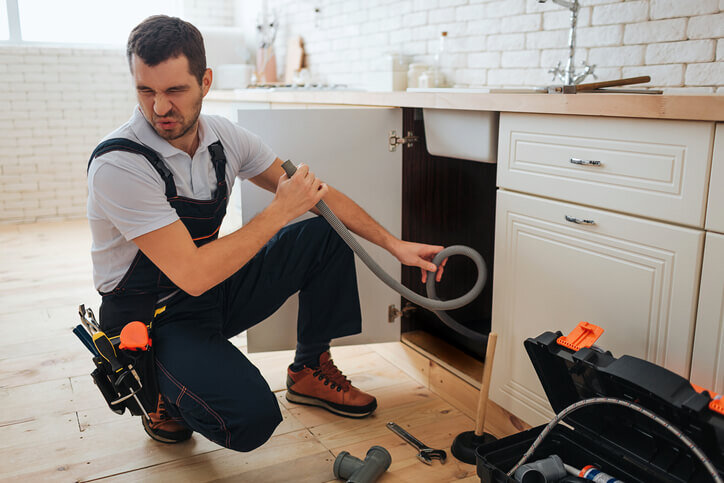Alert: Six Everyday Actions That Could Be Harming The Plumbing
Alert: Six Everyday Actions That Could Be Harming The Plumbing
Blog Article
Each person has their own individual opinions in relation to Leak Detection and Repair Without Destroying Your Home.

The secret to long lasting appliances, unsurprisingly, is proper maintenance. There's no hard and fast regulation that can assure your plumbing appliances a long wear, however you can stop unneeded damage and also repair services by staying clear of negative plumbing behaviors.
You need to stop doing these 6 things else you'll maintain calling your plumber over for minor faults.
Purging whatever
Yes, your toilet drainpipe results in the sewers, yet that doesn't mean you need to dispose simply anything down the tubes. Lots of 'flushable' products are really excellent clog starters, for example floss. Asides maintaining evident non-flushable materials like wires and plastics out of your commode, you must additionally prevent flushing cotton swab, menstruation items, wipes, daipers as well as prophylactics down the bathroom drain.
Putting grease in the sink
We understand properly throwing away grease after a hearty meal is a discomfort. But simply pouring it down the drain can do long-term injury to your pipelines. "The fat and grease can obstruct your drainpipe badly sufficient to compel you to call a plumber," clarifies Dawson. "Plumbing functions best when it's well cared for-- not abused with grease."
Utilizing way too much drain cleaner
Making use of a drainpipe cleaner greater than one or two times a month is a sign that something serious is going on within your pipelines. Now, as opposed to dealing with the major issue, you go with a quick fix; a fizzy drainpipe cleaner. Rightfully, a drain cleaner will care for the obstruction, but at what expense?
The chemicals in a drainpipe cleaner can speed up the corrosion of your pipelines. Add that to whatever underlying issue is creating the clog and you may have to a severe trouble on your hands.
If you experience too many clogs, call your emergency plumber rather than utilizing a drainpipe cleaner.
Not washing recipes prior to filling them into the dishwashing machine
it's called a dishwashing machine, yet throwing in meals, pots, as well as frying pans covered in big food bits can really trigger some major damages to the home appliance, causing long-lasting problems down the line. "Property owners may need to obtain their dishwashing machine repaired regularly if they do not wash their meals before filling, or at least remove larger food items," explains Audrey Monell, owner of Forrest Anderson Plumbing and A/c in Glendale, Arizona. "Food that gets stuck on recipes creates the dishwasher to work harder, which can wear down parts faster, resulting in issues."
DIYing whatever
With plumbing, a stitch in time actually does conserve nine. You can prevent a fullblown plumbing emergency by calling your plumber at the right time.
You might have learnt a couple of plumbing hacks from your papa, yet you ought to understand where to fix a limit and also call a specialist. For example, you may be able to fix a clog yourself, but you should not attempt to transform a pipeline. You might mismatch pipes or overtighten a bolt, creating even more injury as well as damage than you believed. Calling a plumber is a secure and cost effective decision.
Not transforming your dishwashing machine tubes
One easy method to make certain that you use your dishwashing machine for many years is to replace the tube a minimum of when in five years. This additionally requests cleaning equipment pipes.
Gradually, food particles, soap and also grease can form obstructions within your pipes. Changing them in a timely manner will protect against any type of presure build up that can harm the inner workings of your dishwashing machine or cleaning maker.
A strengthened steel intertwined hose does an excellent job of extending your machine's use time.
No winter season preventative measures
Extreme weather misbehave for your pipes, especially if they're made of steel. You ought to shield your revealed pipes, and your water storage tank, even if you have a water heater. You ought to likewise shut off your yard pipe shutoff and any other outside water channels. These channels are outlets for chilly; you pipes can begin to ice up from outdoors if you do not.
How Hard Water Damages Your Plumbing and Appliances
Hard water is no stranger to most households across America. This silent invader affects 85% of homes in the United States every day, wreaking havoc on pipes, plumbing fixtures, and water-using appliances.
Should you become a victim of hard water, you must understand exactly what it is and how it affects your plumbing and appliances. This will help you determine the correct measures to put in place to fix or prevent any problems that may arise.
First off, what exactly is “hard” water?
In short, “hard water” is used to describe water that contains relatively high amounts of dissolved minerals, primarily calcium and magnesium, and a host of trace metals. When rainwater falls from the sky (usually in a pure form), it absorbs the hardness minerals from rocks and soil, which changes it from soft to hard water.
What about my plumbing and appliances?
Mineral deposits from hard water can cause buildup on tubs, shower, sinks, faucets. But that’s only a small scratch of the surface. Those minerals can gradually build up inside pipes, fixtures, water heaters, washing machines, and dishwashers. Once they accumulate in those areas, they can clog pipes and create major problems throughout your plumbing system, from reduced water flow to increased pressure on pipes and fixtures.
This limescale buildup might affect some appliances, causing them to operate less efficiently and wear down faster. And the result? Higher energy bills, more (costly) plumbing replacements and repairs, and damaged appliances.
Keep in mind that certain types of plumbing are more susceptible to clogging than others. Copper, PVC, and PEX pipes are more resistant to hard water buildup and corrosion, but they can still get clogged or completely blocked by scale deposits.
How do I know if my water is hard?
White limescale buildup on plumbing fixtures (or any of the other signs mentioned above) is usually a good sign that your water is hard. If you suspect that you have hard water, you can simply shake up a small amount of dish soap and water in a closed container. If the mixture doesn’t create a lot of suds, you probably have hard water.
The most precise method, however, is to test your water with a DIY test kit (sold online or at local home centers or hardware stores) or send a water sample from your tap to a local lab to be tested. Be sure that you understand the nature of the test, the water condition being measured, and the significance of the test results.
Another way to obtain an estimate of water hardness is to check your annual water quality report to see if your water provider has reported any instance(s) of water hardness in your water supply.
https://www.springwellwater.com/how-hard-water-damages-your-plumbing-and-appliances/

We had been made aware of that article about Don’t Let an Earthquake Damage Your Plumbing through someone on our other web page. Enjoyed our post? Please share it. Help another person find it. Thanks a lot for your time invested reading it.
Visit My Site Report this page